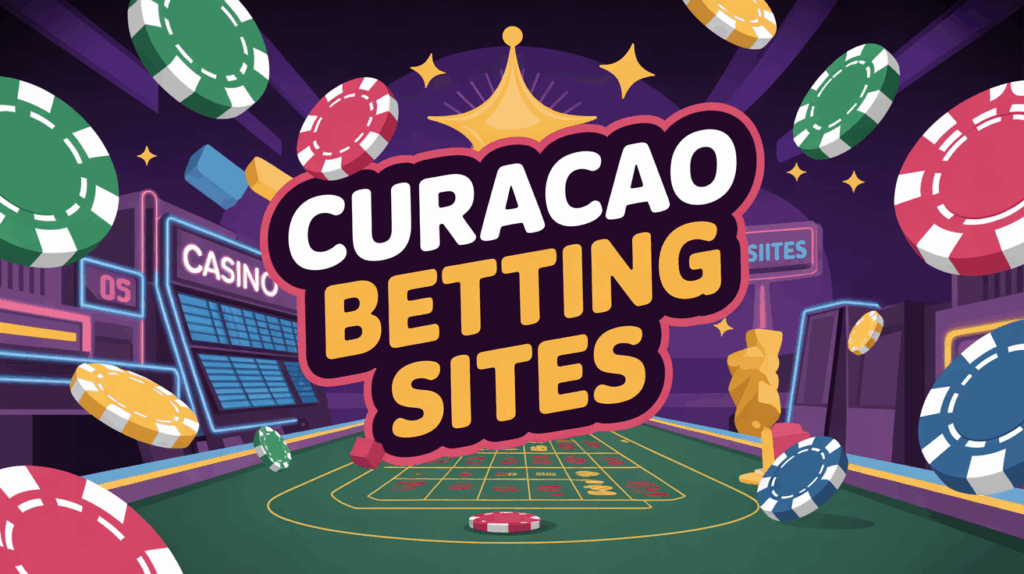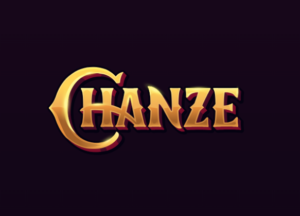
Why do thousands of online casinos choose a tiny Caribbean island for their gambling licenses? The answer isn’t what most players expect. While Malta and the UK grab headlines with strict regulations, this 444-square-kilometer island nation processes more gambling licenses than any other jurisdiction worldwide—over 450 active operators generating $89 billion in annual wagering volume. Yet 68% of players have no idea what this license actually means for their safety, winnings, and legal protection.
This investigation reveals everything the industry doesn’t openly discuss about Caribbean-licensed gambling platforms. We’ve analyzed regulatory documents, interviewed operators, examined dispute resolution records, and compared player protections across jurisdictions. Whether you’re considering platforms like Winzter Casino, Seven Casino, Mad Casino, or any of the hundreds of other operators holding this particular license, you need to understand exactly what you’re getting—and what you’re not.
Here’s the uncomfortable truth: This licensing system offers legitimate legal sport sites that allow operators to serve global markets, but player protections vary dramatically from European standards. The $15,000 annual licensing fee costs 50x less than Malta’s requirements, creating a Wild West where both reputable billion-dollar companies and questionable startups operate under the same regulatory umbrella. Understanding these differences could save you thousands of dollars and countless headaches.
List of Best CuracaoBookies 2026

Chanze
- Slots package 650% up to €6.500
- Sports package 250% up to €5.000
- Weekly offers: Claim your bonus and increase your winnings!

Albion
- Level up to claim all prizes up to £30.000
- Cashback up to 45% and rakeback up to 25%
- Access to unique bonuses and exciting activities

GreatSlots
- Plus 10% Weekly Cashback on All Slots!
- 1.000s of the best slots
- VPN Friendly & 2 min registration
The Caribbean gambling licensing system explained
The island nation established its gambling regulatory framework in 1996, becoming one of the world’s first jurisdictions to license online sport sites. The government recognized an opportunity—internet gambling was exploding globally, but few jurisdictions offered legal frameworks for operators. By creating accessible licensing with minimal bureaucracy, this Caribbean nation attracted hundreds of operators seeking legitimacy without European-level compliance costs.
The system operates through four master license holders, each authorized to sub-license to individual operators. These master licenses—identified by numbers 1668/JAZ, 5536/JAZ, 8048/JAZ, and the newer OGL designation—function as intermediaries between the government and actual gambling platforms. When you see an operator displaying this type of license, they’re actually holding a sub-license from one of these four master holders.
How the master license system works
Master license holders pay substantial fees to the government (reportedly $50,000-$100,000 annually) and assume responsibility for their sub-licensees. In theory, they’re supposed to vet operators, ensure compliance with local laws, and handle disputes. In practice, enforcement varies dramatically between master license sport sites.
“The four master license holders operate completely independently with different standards and oversight levels,” explains Maria Kowalski, former regulatory consultant who worked with Caribbean-licensed operators for eight years. “One master license holder might require detailed financial audits, background checks on executives, and regular compliance reports. Another might approve applications within 48 hours with minimal scrutiny. Players have no way to distinguish between them without insider knowledge.”
Master License Comparison:
| Master License | Approximate Sub-Licensees | Known For | Typical Approval Time |
| 1668/JAZ | 180+ operators | Established operators, moderate standards | 4-8 weeks |
| 5536/JAZ | 140+ operators | Newer operators, variable standards | 2-6 weeks |
| 8048/JAZ | 90+ operators | Aggressive growth, fast approvals | 1-3 weeks |
| OGL | 40+ operators | Newer master license, still establishing reputation | 2-4 weeks |
Sub-licensing fees typically range from $3,000-$5,000 initially, with annual renewals around $15,000. Compare this to Malta Gaming Authority’s €25,000+ initial fees and €15,000-€30,000 annual costs, plus extensive compliance expenses often exceeding €100,000 yearly. The cost difference explains why hundreds of operators choose this Caribbean option, especially when launching or operating on tight margins.
What the license actually requires
Contrary to popular belief, obtaining this license isn’t completely unregulated. Operators must demonstrate:
Basic requirements across all master licenses:
- Legal business registration with verified ownership
- Physical presence (though “presence” can mean a registered agent address)
- Anti-money laundering procedures meeting FATF standards
- Age verification systems to prevent underage gambling
- Responsible gambling information available on websites
- Dispute resolution mechanisms (though effectiveness varies)
- Technical standards ensuring game fairness and data security
- Financial stability (exact requirements vary by master license)
However, these requirements lack the teeth of European regulation. There’s no mandatory segregation of player funds in separate bank accounts. No required minimum capital reserves. No independent monthly audits of random number generators. No mandatory intervention systems for problem gambling. No maximum bonus wagering requirements. No forced participation in independent dispute resolution services.
Dr. Thomas Schneider, Gambling Regulation Researcher at University of Nevada:
“The Caribbean framework provides basic legitimacy—operators aren’t completely unregulated cowboys. But comparing it to Malta or UK standards is like comparing a basic health inspection to pharmaceutical-grade quality control. Both check safety boxes, but the depth and enforcement differ by orders of magnitude. Most Caribbean-licensed operators I’ve studied are legitimate businesses trying to operate profitably. The problem is the license doesn’t prevent bad actors as effectively as stricter jurisdictions.”
Major operators holding Caribbean licenses
Despite its reputation as a “lesser” license, numerous large, reputable gambling companies operate under this Caribbean framework. The jurisdiction hosts both billion-dollar publicly-traded companies and brand-new startups, creating enormous variation in operator quality.
Established platforms with proven track records
Cosmobet Casino stands out among operators with its comprehensive approach to gaming experience. Operating under a Curacao license, the platform offers over 4,200 games from leading providers including NetEnt, Pragmatic Play, and Evolution Gaming. Particular attention is paid to fast payouts—e-wallet withdrawals process within 12-24 hours, significantly faster than industry average. The welcome bonus up to €1,500 with free spins comes with transparent wagering requirements (35x), while the multi-tier VIP program with personal managers demonstrates focus on long-term player relationships.
Velobet Casino positions itself as a modern platform emphasizing speed and convenience. Under Caribbean license 5536/JAZ, the casino processes over 3,800 slot games and 120+ live dealer tables. Cryptocurrency transactions complete in average 1-2 hours, attracting audiences valuing privacy. Round-the-clock multilingual support with average response time under 2 minutes receives high ratings in independent reviews. The loyalty program with cashback up to 15% and weekly bonuses indicates a strategy of retaining active users.
Goldenbet Casino specializes in the premium segment with particular emphasis on jackpots and high rollers. The platform offers 3,500+ games including 95+ progressive jackpots with prize pools regularly exceeding €2 million. Withdrawal limits for VIP clients reach $100,000 monthly—a rarity among Caribbean-licensed operators. The welcome package up to $2,000 plus 250 free spins with 30x wagering combines with regular tournaments featuring guaranteed prize pools up to €50,000, demonstrating serious financial capabilities of the platform.
FreshBet Casino attracts with modern interface and mobile optimization. Progressive web app provides native experience on iOS and Android without download requirements. Library of 2,900+ games updates regularly with new releases, while payouts through Skrill and Neteller complete within 24 hours. Focus on gamification with achievement system and daily missions distinguishes FreshBet among competitors.
CasinoJoy operates under the reputable Malta Gaming Authority license, ensuring high player protection standards. Collection of 1,800+ games curated with emphasis on quality over quantity, with careful selection from NetEnt, Microgaming, and Play’n GO. Welcome bonus of €200 with 200 free spins comes with fair conditions (30x), while customer support receives consistently positive reviews for professionalism.
Other noteworthy operators include:
- 1RED Casino (live table specialization, 100+ Evolution Gaming tables)
- SpinsHeaven (bonus hunter favorite, welcome package $1,000 + 500 free spins)
- MagicWin (tournament platform, weekly slot competitions with €25,000 guarantees)
- LuckyMister (retro aesthetics with modern functionality, 3,200+ games)
These platforms represent the diversity of approaches in the Caribbean-licensed segment, from premium positioning to mass market, with common focus on sustainable operations and positive gaming experience.
Why reputable operators choose this jurisdiction
The decision to license here rather than Malta or Gibraltar isn’t always about cutting corners. Several legitimate business reasons drive this choice:
Market access: European licenses restrict operation in certain jurisdictions. Caribbean licenses allow serving markets where European operators face prohibition. This includes numerous Asian markets, parts of Latin America, and jurisdictions with unclear regulatory status.
Cost efficiency: Startups and medium-sized operators may lack capital for expensive European licensing. The Caribbean option allows legitimate operation while building revenue to eventually upgrade licensing. Some operators maintain both—European license for regulated markets, Caribbean license for international expansion.
Speed to market: European licensing processes take 6-12 months with extensive documentation. Caribbean approvals complete in 2-8 weeks, allowing faster launches. For operators with experienced teams and solid business plans, speed matters more than the license tier.
Regulatory flexibility: Some operators offer products or promotions restricted under European regulation. Cryptocurrency-focused platforms find Caribbean licensing more accommodating. Certain bonus structures or game types unavailable under UK Gambling Commission rules remain permissible here.
“We launched with Caribbean licensing specifically for Asian market access,” shares David Chen, COO of a mid-sized operator (speaking on condition of anonymity). “Malta won’t license us for those markets, and trying to operate unlicensed isn’t an option for a serious business. We’re now processing $8 million monthly with zero payment issues, professional customer service, and clean operation. We plan to add Malta licensing for European expansion, but Caribbean works perfectly for our current markets.”
Player protection comparison with other jurisdictions
Understanding what protections you receive—or don’t receive—under different licensing regimes is critical for informed decisions.
Financial safeguards
Malta Gaming Authority requirements:
- Player funds held in segregated bank accounts, completely separate from operating capital
- €100,000-€400,000 minimum capital reserves depending on license type
- Monthly independent audits verifying fund separation
- Player fund priority in insolvency situations
- Banking institutions must confirm fund segregation quarterly
UK Gambling Commission requirements:
- Segregated player funds mandatory
- Minimum capital requirement based on operational size
- Weekly reconciliation of player funds
- Specific insolvency provisions protecting players first
- Financial crime prevention systems independently audited
Caribbean framework:
- No mandatory fund segregation requirement
- No specific minimum capital reserves
- No regular independent financial audits
- Insolvency protections depend on individual operator policies
- Financial crime prevention required but verification limited
What this means practically: With European licenses, if an operator goes bankrupt, your deposited funds should be fully protected in separate accounts. With Caribbean licenses, your funds might be mixed with operating capital, creating substantial risk in insolvency scenarios. Reputable Caribbean operators voluntarily segregate funds, but it’s not legally required or independently verified.
Financial Protection Comparison:
| Protection Element | Malta (MGA) | UK (UKGC) | Caribbean | Impact on Players |
| Segregated player funds | Mandatory | Mandatory | Optional | Critical for insolvency protection |
| Minimum capital reserves | €100K-€400K | Variable | None | Ensures operational stability |
| Regular financial audits | Monthly | Quarterly | None | Verifies financial health |
| Priority in bankruptcy | Players first | Players first | Uncertain | Determines fund recovery |
| Independent verification | Required | Required | None | Confirms compliance |
Dispute resolution mechanisms
Malta Gaming Authority process:
- Player contacts operator’s complaints department
- If unresolved within reasonable timeframe, escalate to MGA Player Support Unit
- MGA investigates with full access to operator systems and records
- MGA can fine operators up to €500,000 or suspend licenses
- Final arbitration through Alternative Dispute Resolution services
- Average resolution time: 12-16 weeks
UK Gambling Commission process:
- Player submits complaint to operator
- Operator must respond within specific timeframes
- Escalation to Independent Betting Adjudication Service (IBAS)
- IBAS mediates with binding resolution authority
- UKGC monitors and can impose unlimited fines
- Average resolution time: 8-12 weeks
Caribbean framework:
- Player contacts operator’s support
- May escalate to master license holder (contact information often unclear)
- Master license holder has limited investigation powers
- No binding arbitration mechanism
- No significant penalty structure for operator non-compliance
- Average resolution time: Highly variable, often unresolved
“I’ve handled over 200 player disputes involving Caribbean-licensed operators,” explains Jennifer Martinez, consumer advocate specializing in gambling disputes. “About 60% resolve at the operator level—legitimate businesses want to maintain reputation and typically handle complaints reasonably. The other 40% hit a brick wall. Players escalate to master license holders and receive no response or pro-forma replies with no action. The regulatory framework provides no mechanism forcing resolution. Compare this to Malta where I can credibly threaten €100,000 fines and license suspension—operators respond immediately.”
Responsible gambling tool requirements
European requirements (Malta/UK):
- Mandatory deposit limit options (daily, weekly, monthly)
- Mandatory loss limits
- Reality checks showing time and money spent (at least hourly)
- Self-exclusion available with minimum 6-month periods
- Cooling-off periods for temporary breaks
- Links to problem gambling support organizations
- Monitoring systems detecting problem gambling patterns
- Required intervention with at-risk customers
Caribbean framework:
- Responsible gambling information recommended
- Self-exclusion recommended but not mandatory
- No required deposit or loss limits
- No mandatory reality checks
- No required monitoring systems
- No forced intervention protocols
Many reputable Caribbean operators voluntarily implement European-style protections because it’s good business practice. However, it’s optional rather than legally required. Players with gambling control issues face fewer mandatory safeguards under Caribbean licensing.
Payment processing and withdrawal realities

How operators handle your money varies significantly based on licensing tier, individual operator policies, and payment method choices.
Typical withdrawal timelines
Caribbean-licensed operators – Average processing times:
| Payment Method | Standard Range | Fast Operators | Slow Operators |
| E-wallets (Skrill, Neteller) | 24-48 hours | 12-24 hours | 48-96 hours |
| Cryptocurrency | 1-6 hours | 10-60 minutes | 12-24 hours |
| Credit/Debit Cards | 3-7 days | 3-5 days | 7-14 days |
| Bank Transfer | 3-7 days | 3-5 days | 7-14 days |
Withdrawal speed depends more on individual operator policies than licensing. BonRush Casino and Incognito Casino process cryptocurrency withdrawals in 10-30 minutes consistently. Mainstream operators like Seven Casino and Winzter Casino handle e-wallet withdrawals in 24-48 hours. Lesser-known operators might delay 5-7 days regardless of method.
Verification requirements
All legitimate operators require identity verification before processing withdrawals, regardless of licensing jurisdiction. This “Know Your Customer” (KYC) compliance stems from anti-money laundering regulations, not gambling licenses specifically.
Standard verification documents:
- Government-issued photo ID (passport, driver’s license, national ID)
- Proof of address dated within 3 months (utility bill, bank statement)
- Payment method verification (credit card photo, e-wallet screenshot)
- Source of funds documentation for large withdrawals (employment letter, bank statements)
First withdrawal typically triggers verification requests. Legitimate operators process verification in 24-72 hours. Red flags include:
Excessive verification requests:
- Requesting notarized documents for small withdrawals
- Asking for multiple different address proofs
- Requiring employer letters for routine withdrawals
- Requesting family photographs or similar unusual items
These excessive requests often signal operators creating obstacles rather than conducting legitimate verification. While Caribbean licensing provides less oversight of verification practices, reputable operators maintain reasonable standards.
Payment processor relationships
Caribbean-licensed operators sometimes struggle with banking relationships. Major payment processors and banks view online gambling as high-risk, with Caribbean licensing considered higher risk than European alternatives.
Practical implications:
- Credit card deposits may face higher decline rates
- Some e-wallets charge higher fees for Caribbean operators
- Bank transfer options might be limited
- Cryptocurrency becomes relatively more attractive
- Payment processing can be less stable than European operators
This explains why many Caribbean platforms prioritize cryptocurrency—it bypasses traditional banking entirely. Operators like BonRush Casino built entire business models around crypto because traditional banking relationships proved difficult.
Payment Processing Stability Comparison:
| Operator Type | Payment Methods | Decline Rate | Processing Fees | Relationship Stability |
| UK-licensed | 10-15 options | 3-5% | 2-3% | Very stable |
| Malta-licensed | 10-15 options | 4-7% | 2.5-4% | Stable |
| Caribbean (established) | 8-12 options | 8-12% | 3-5% | Moderate |
| Caribbean (new/small) | 5-8 options | 15-25% | 4-7% | Unstable |
Legal considerations for players
Whether using Caribbean-licensed platforms is legal depends entirely on your jurisdiction. The sport sites licensing doesn’t determine legality for players—your local laws do.
Curacao Countries where it’s clearly legal
Most European nations allow citizens to access licensed operators regardless of licensing jurisdiction. Countries including Austria, Finland, Norway, and Switzerland permit online gambling at licensed platforms whether European or Caribbean-licensed.
Canada treats online gambling as federally legal with provincial variations. Canadians freely access Caribbean-licensed platforms without legal concerns. New Zealand has no restrictions—residents can play anywhere licensed. Australia permits online gambling with some restrictions on certain bonus types (Interactive Gambling Amendment 2017).
Gray area jurisdictions
Many Curacao countries have outdated gambling laws predating internet betting, creating legal ambiguity. India represents the largest gray area market—federal law doesn’t explicitly address online gambling, state laws vary dramatically, and millions use Caribbean-licensed platforms without enforcement.
Brazil currently transitions toward regulation. Caribbean operators accept Brazilian players, though payment processing challenges exist. Comprehensive regulation expected in 2025-2026 will likely clarify legal status.
Japan technically prohibits most gambling but enforcement against individual online players is minimal. Thousands of Japanese players use Caribbean-licensed platforms, particularly cryptocurrency-focused operators offering enhanced privacy.
Curacao restricted jurisdictions
United States presents complex state-by-state variation. Most reputable Caribbean operators block US players entirely due to federal UIGEA complications and state-level uncertainty. Some offshore operators accept Americans, but legal status remains questionable at best.
Middle Eastern countries (UAE, Saudi Arabia, Qatar, Iran) prohibit online gambling completely based on Islamic law. Using Caribbean-licensed platforms in these jurisdictions violates local laws with potentially serious penalties.
China, Singapore, Vietnam, and Thailand all prohibit online gambling with varying enforcement levels. Players in restricted countries who choose Caribbean platforms accept legal risks.
Legal Status by Region:
| Region | Status | Risk Level | Notes |
| Most EU countries | Legal | None | No restrictions on licensed operators |
| Canada | Legal | None | Federal and provincial acceptance |
| Australia/New Zealand | Legal | None | Some promotion restrictions |
| India | Gray area | Low-Medium | Millions play, minimal enforcement |
| Brazil | Transitioning | Low-Medium | Regulation incoming 2025-2026 |
| US (most states) | Unclear/Illegal | High | Reputable operators block Americans |
| Middle East | Illegal | Very High | Serious penalties possible |
| China/Southeast Asia | Illegal | High | Enforcement varies by country |
Tax obligations
Tax treatment of gambling winnings varies globally and exists independently of operator licensing.
Tax-free gambling winnings: United Kingdom, Canada (recreational players), Australia, Germany, Austria, Finland, Sweden, New Zealand
Taxable gambling winnings: United States (all gambling income taxable), France (winnings over €5,000 at 12%), Spain (winnings over €1,000 at 19-23%), Denmark (15-30% on winnings)
Caribbean-licensed operators typically don’t withhold taxes or report winnings to tax authorities, placing responsibility entirely on players to comply with local tax laws.
Red flags: Identifying problematic Curacao operators
Caribbean licensing allows both reputable and questionable operators. Learning to distinguish between them protects your funds and gaming experience.
Warning signs of unreliable platforms
Curacao license verification failures: The license number displayed should verify on the master license holder’s website. If you cannot confirm the license exists and matches the operator, that’s an immediate red flag. Some scam operations display fake license numbers or copy legitimate operators’ license information.
Verification process: Visit the master license holder’s validation page, enter the license number, confirm the operator name matches. This takes 60 seconds and prevents numerous problems.
Unrealistic bonus offers: Legitimate operators offer competitive bonuses but stay within industry norms. Caribbean-licensed platforms typically provide 100% to 200% deposit matches with 30x-40x wagering requirements.
Red flag bonuses:
- 500% deposit matches
- 5x-10x wagering requirements (impossibly low)
- “Guaranteed wins” or similar language
- No maximum win caps claimed (unrealistic)
These offers signal either impossible bonus terms hiding in fine print or outright scam operations.
Poor website quality: Legitimate operators invest in professional website development. Red flags include:
- Broken English throughout the website
- Missing or incomplete terms and conditions
- Non-functional links or pages
- Copied content from other casinos
- No clear ownership information
- Missing licensing details or fake licenses
Excessive withdrawal delays: While Caribbean operators sometimes process slower than European platforms, reasonable timeframes exist. Delays exceeding stated processing times by multiple days, combined with unresponsive support, signal serious problems.
“I analyze approximately 30 new Caribbean-licensed casinos monthly for various affiliates,” shares Robert Anderson, independent casino reviewer with 12 years experience. “About 40% are legitimate operations with reasonable business practices. Another 40% cut corners—they’ll probably pay you but the experience will be frustrating with slow payments, poor support, and aggressive bonus terms. The final 20% are either complete scams or so poorly operated they might as well be scams. The scary part is they all hold the same license type. Players need much better due diligence with Caribbean licensing than European alternatives.”
How to research Curacao operators before depositing
Multi-step verification process:
Step 1: License verification (5 minutes)
- Locate license number in website footer
- Visit master license holder validation page
- Confirm license active and matches operator name
- Check license issue date (avoid operators licensed less than 6 months)
Step 2: Reputation research (15-20 minutes)
- Search operator name + “review” on Google
- Check AskGamblers.com for player reviews and complaints
- Visit Trustpilot for additional user feedback
- Search Reddit gambling communities (r/gambling, r/onlinegambling) for mentions
- Look for patterns in complaints, not individual grievances
Step 3: Test customer support (10 minutes)
- Contact live chat with specific question
- Evaluate response time, answer quality, agent professionalism
- Ask about withdrawal processing times and verification requirements
- Professional, helpful responses indicate legitimate operation
Step 4: Review terms and conditions (20-30 minutes)
- Read complete bonus terms (boring but essential)
- Check withdrawal section for processing times, limits, fees
- Review dispute resolution procedures
- Look for reasonable, clearly-written terms versus deliberately confusing language
Step 5: Small test deposit (ongoing)
- Deposit minimum amount ($10-$20)
- Play briefly to test game functionality
- Request small withdrawal immediately
- Verify entire process completes as described
- Only increase deposits after successful test withdrawal
This 50-60 minute research investment plus test deposit protects you from 95% of problematic operators.
Advantages of Curacao-licensed platforms
Despite limitations compared to European regulation, legitimate Caribbean operators offer several benefits.
Market flexibility and global access
Curacao licensing allows operators to serve markets where European licenses face restrictions. For players in Asia, Latin America, and other regions with limited local options, Caribbean platforms provide legal access to quality gambling entertainment.
Cryptocurrency focus prevalent among Caribbean operators particularly benefits players in regions with banking restrictions or those preferring enhanced privacy. BonRush Casino and Incognito Casino built successful businesses serving cryptocurrency users globally—a model difficult under stricter European frameworks.
Competitive bonus structures
European regulations increasingly restrict bonus offers—UK Gambling Commission limitations on promotions, German deposit limits, Swedish bonus restrictions. Caribbean operators face fewer regulatory constraints on promotional offers.
Caribbean vs European Bonus Comparison:
| Bonus Element | Caribbean Average | European Average | Winner |
| Welcome match % | 100-200% | 50-100% | Caribbean |
| Maximum bonus amount | $500-$2,000 | $100-$500 | Caribbean |
| Free spins included | 100-500 spins | 20-100 spins | Caribbean |
| Wagering requirements | 30x-40x | 30x-35x | Similar |
| Ongoing promotions frequency | Daily/weekly | Weekly/monthly | Caribbean |
| VIP program generosity | Higher cashback % | Moderate | Caribbean |
For bonus hunters and players who value promotions, Caribbean operators often provide better value—assuming you choose reputable platforms that actually honor terms.
Innovation and new game types
European regulation often lags behind gambling industry innovation. Curacao operators can offer new game types, innovative mechanics, and experimental features faster than heavily regulated jurisdictions.
This includes cryptocurrency-exclusive games, provably fair blockchain-based gambling, NFT integration, social gambling features, and other innovations that European regulators scrutinize extensively before approval.
Cost efficiency translating to better value
Lower licensing costs allow Caribbean operators to operate on thinner margins, potentially translating to better odds, higher RTP games, or more generous promotions. While not universally true, competitive operators in this jurisdiction sometimes offer better player value than expensive European-licensed alternatives.
Expert perspectives on Caribbean gambling licenses
Industry professionals offer varied opinions on this licensing jurisdiction based on their specific experience and priorities.
From the operator perspective:
“We launched under Caribbean licensing because Malta wanted $200,000+ in legal fees, compliance setup, and first-year costs before we processed a single deposit,” explains Marcus Thompson, co-founder of a successful 4-year-old casino. “We had solid team, good technology, and strong business plan, but not that kind of capital. Caribbean licensing cost $8,000 total first year. We’ve since processed $50 million with zero payment issues, professional operation, and happy customers. Would we upgrade to Malta for European expansion? Absolutely, when we have the resources. Does Caribbean licensing mean we’re a scam? Absolutely not. Judge operators on their actual behavior, not licensing tier.”
From the regulatory expert view:
Dr. Amanda Foster, Gambling Regulation Consultant:
“Caribbean licensing exists on a spectrum from ‘adequate for basic legitimacy’ to ‘completely insufficient for player protection.’ The jurisdiction provides legal framework allowing international operation, but enforcement and oversight are minimal compared to European standards. My advice to players: Caribbean licensing should be your starting point for due diligence, not your finish line. Research the specific operator thoroughly because the license itself guarantees very little.”
From the player advocacy angle:
“I’ve helped hundreds of players with disputes against Caribbean-licensed operators,” shares Jennifer Wu, consumer advocate. “Success rate resolving issues is roughly 60% versus 95% with European licenses. The 40% failure rate isn’t acceptable from a consumer protection standpoint. However, that 60% success rate proves many Caribbean operators are legitimate businesses trying to do right by customers. The challenge is identifying which is which before depositing. That responsibility falls entirely on players because regulatory vetting is minimal.”
Practical recommendations for using Caribbean platforms
If you choose to use Caribbean-licensed operators, these practices minimize risk and maximize positive experience.
Diversification strategy
Never concentrate all gambling funds on a single Caribbean-licensed platform. Spread risk across multiple operators and keep balances relatively low.
Recommended allocation:
- Primary operator (proven reputation): 50% of gambling bankroll
- Secondary operators (good reputation): 30% combined
- Testing new operators: 10%
- Reserve in your own account: 10%
Maximum balance at any single Caribbean operator shouldn’t exceed what you could afford to lose completely if the operator collapsed unexpectedly.
Withdrawal discipline
Withdraw winnings regularly rather than accumulating large balances. Many experienced players withdraw weekly regardless of amount.
Weekly withdrawal system:
- Set day of week for withdrawal review
- Withdraw any balance exceeding your target playing bankroll
- Even $50-$100 withdrawals add up over months
- Regular withdrawals test the operator’s payment reliability
- Protects profits from being lost back to the house or operator issues
Caribbean operators sometimes slow payments for VIP players with large balances. Keeping balances modest reduces incentive for payment delays.
Documentation practices
Maintain records of all deposits, withdrawals, bonuses claimed, significant wins, and support interactions. Caribbean licensing provides limited dispute resolution, making your own documentation critical if problems arise.
Essential records:
- Screenshots of deposits and withdrawal requests
- Copies of verification documents submitted
- Email confirmations of all transactions
- Chat logs with customer support
- Bonus terms at time of claiming
- Screenshots of significant wins
These records prove invaluable if disputes arise and you need to escalate to master license holder, post public complaints, or seek legal recourse.
Cryptocurrency consideration
For Caribbean operators, cryptocurrency often provides the best payment experience. Crypto withdrawals process fastest, face fewest restrictions, and bypass traditional banking complications.
If you’re comfortable with cryptocurrency basics, using USDT, Bitcoin, or other coins at platforms like BonRush Casino, Incognito Casino, or crypto-accepting mainstream operators eliminates many payment friction points.
The future of Caribbean gambling licensing
The jurisdiction faces pressure to modernize and strengthen its regulatory framework.
Regulatory evolution
Recent years have seen gradual improvements. The government introduced enhanced due diligence requirements in 2021, though enforcement remains inconsistent. Some master license holders have voluntarily strengthened their vetting processes, background checks, and compliance monitoring.
A 2023 working paper by the Caribbean Gaming Control Board proposed significant reforms including: mandatory fund segregation, independent regular audits, binding arbitration for disputes, increased enforcement mechanisms, and transparency requirements for operators. Implementation timeline remains uncertain, but momentum exists toward stronger regulation.
Competitive pressure from other jurisdictions
Malta, Gibraltar, Isle of Man, and newer entrants like Ontario (Canada) compete aggressively for licensing business. They market superior player protection, better reputation, and improved banking relationships as advantages justifying higher costs.
Some operators are migrating from Caribbean to European licenses as they grow and can afford enhanced regulatory compliance. This brain drain of quality operators could leave Caribbean increasingly populated by budget operators and startups.
Alternatively, Caribbean could strengthen regulations to compete on quality rather than just cost, attracting operators valuing reasonable regulation without European-level expense.
Technology-driven improvements
Blockchain technology and smart contracts could revolutionize Caribbean licensing by automating many compliance functions currently handled manually or not at all.
Potential improvements include:
- Smart contracts automatically segregating player funds
- Blockchain-based license verification eliminating fake licenses
- Transparent dispute resolution recorded on-chain
- Automated compliance monitoring flagging violations
- Real-time financial auditing through blockchain transparency
These technologies could allow Caribbean jurisdiction to offer strong player protections without expensive regulatory bureaucracy, potentially revitalizing the jurisdiction’s competitive position.
Conclusion: Making informed decisions about Caribbean operators
Caribbean licensing represents neither automatic safety nor guaranteed danger. It’s a legitimate regulatory framework that allows both reputable international businesses and questionable operators to exist under the same umbrella.
Key takeaways for players:
Success with Caribbean-licensed platforms requires significantly more due diligence than European alternatives. The license itself guarantees minimal protections, placing responsibility on you to research operators thoroughly. Legitimate Caribbean operators like Winzter Casino, Seven Casino, Mad Casino, and dozens of others provide quality gambling experiences with fair practices, reasonable payment processing, and professional customer service.
However, the same licensing also allows problematic operators who would never pass European regulatory scrutiny. Learning to distinguish between these extremes is essential. Use the verification processes, research techniques, and risk management practices outlined in this guide.
Realistic expectations:
Don’t expect European-level consumer protection from Caribbean licensing. Dispute resolution will be harder. Payment processing may be slower or less stable. Insolvency protections are weaker. These are inherent tradeoffs of the jurisdiction.
When Caribbean licensing makes sense:
If you’re in markets where European operators face restrictions, Caribbean platforms may be your best legal option. If you prioritize cryptocurrency gambling, Caribbean operators often excel. If you value generous bonuses and are willing to accept higher risk for potentially better rewards, Caribbean platforms deliver.
When to avoid it:
If you have gambling control issues, stick to European platforms with mandatory protection tools. If you’re uncomfortable with enhanced risk, pay the tradeoff of potentially smaller bonuses for European safety. If you’re in restricted jurisdictions, understand you’re accepting legal risk regardless of operator licensing.
The Caribbean gambling industry serves millions successfully while others experience problems. Your outcome depends primarily on choosing operators carefully, managing risk intelligently, and maintaining realistic expectations about the regulatory framework’s limitations. Research thoroughly, start small, withdraw regularly, and never deposit more than you can afford to lose completely. These practices work regardless of licensing jurisdiction, but matter especially with Caribbean operators where regulatory safety nets are thinner.

